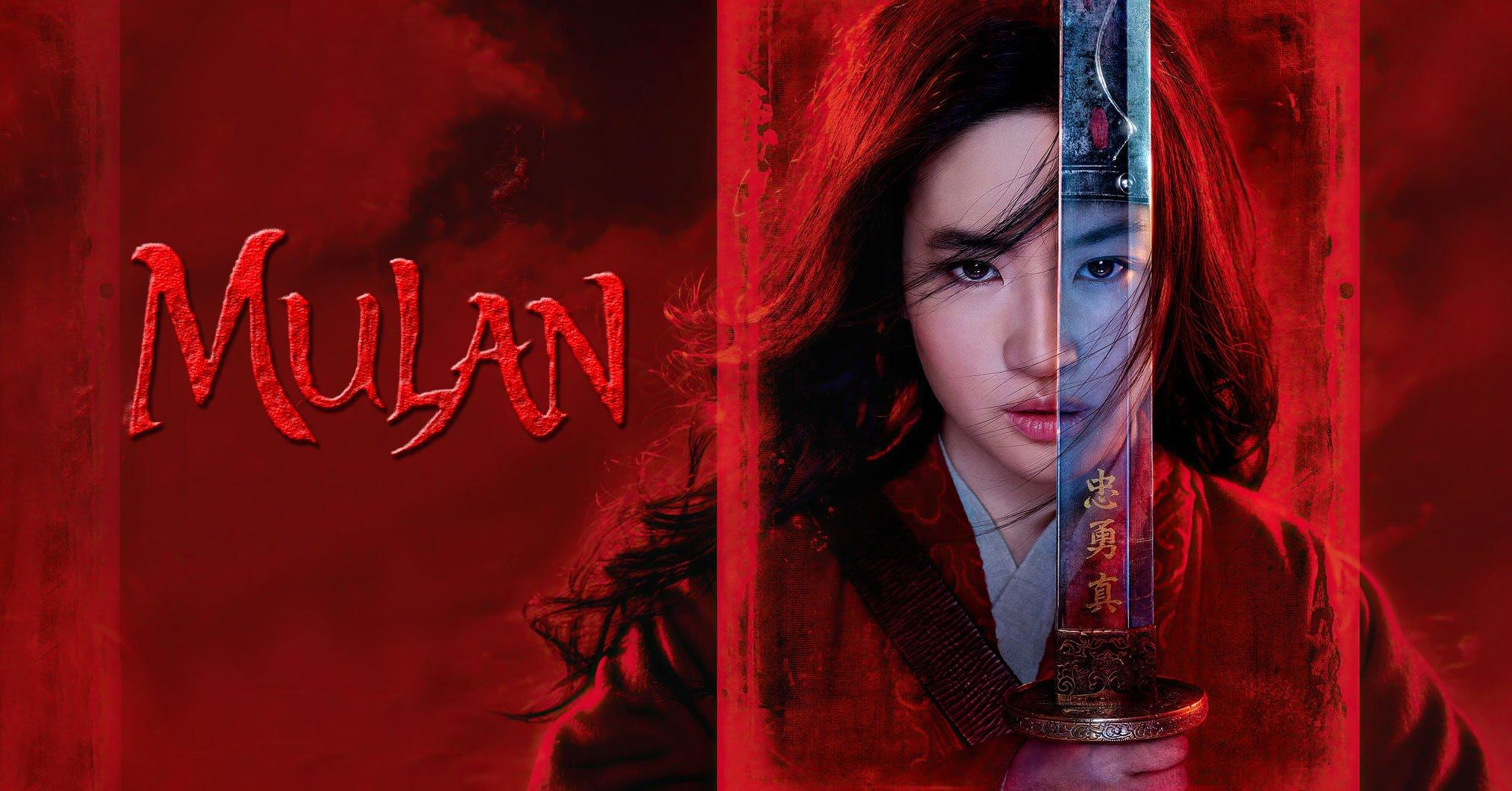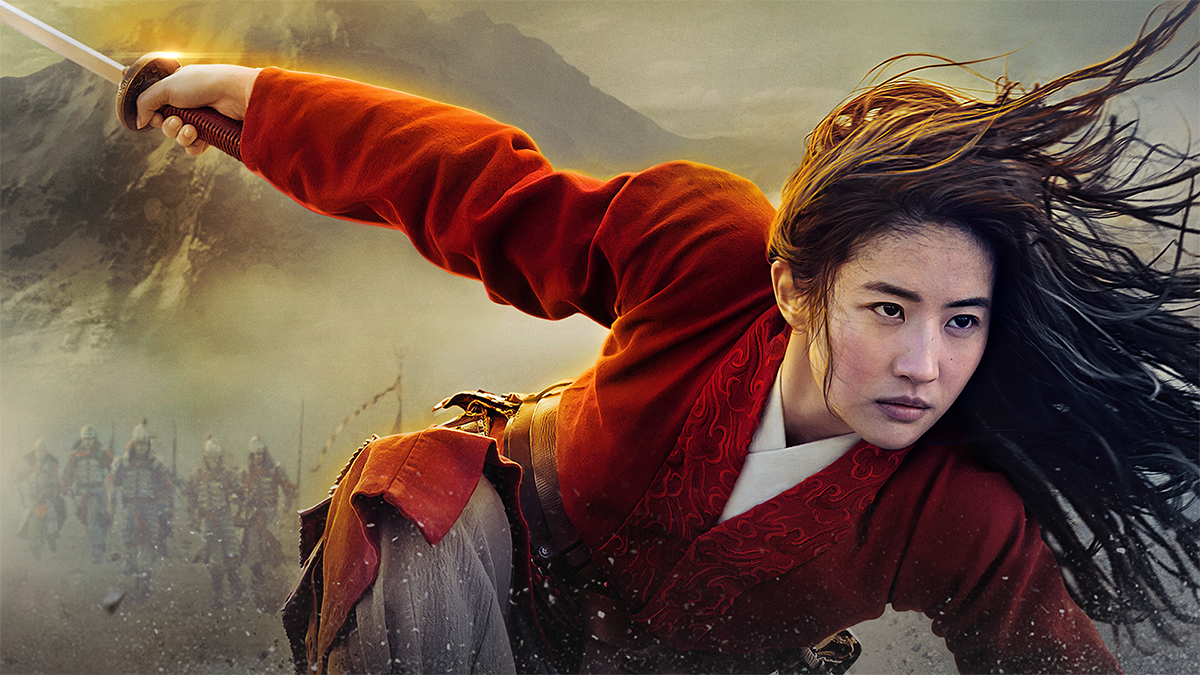“Mulan (2020)”

“Mulan” (2020) is a live-action adaptation of Disney’s 1998 animated classic, directed by Niki Caro. This version of Mulan takes a more realistic, grounded approach to the legendary Chinese tale of Hua Mulan, a young woman who disguises herself as a man to take her father’s place in the Imperial Army. Unlike the animated film, which features musical numbers and fantastical elements such as the dragon Mushu, the 2020 adaptation leans heavily into martial arts, Chinese culture, and epic battle sequences, offering a fresh take on the beloved story.
Plot Overview
The film follows Mulan (played by Liu Yifei), a courageous and determined young woman living in ancient China. When the Emperor (Jet Li) issues a decree that one man from each family must serve in the Imperial Army to defend the country from northern invaders led by Bori Khan (Jason Scott Lee), Mulan’s elderly and ailing father, Hua Zhou (Tzi Ma), is called to fight. Knowing that her father will not survive another battle, Mulan decides to disguise herself as a man, taking his place in the army.
Mulan trains alongside other recruits under the command of Commander Tung (Donnie Yen), struggling to conceal her true identity. As she grows stronger and more confident, she must also deal with the threats posed by the invaders, including the powerful witch Xianniang (Gong Li), who is an ally of Bori Khan. Throughout the journey, Mulan learns to embrace her true self and her inner strength, eventually leading her to become a hero who saves her country.
Key Characters
- Mulan (Liu Yifei): Mulan is a fearless and skilled warrior who disguises herself as a man to protect her family. In this version, Mulan’s inner strength and chi (a concept of vital energy in Chinese culture) are key to her development as a fighter. Liu Yifei brings grace, intensity, and physicality to the role, portraying Mulan’s struggle between her duty to her family and her desire to be true to herself.
- Commander Tung (Donnie Yen): Tung is the leader of Mulan’s military unit and serves as a mentor figure to her. He embodies discipline and honor, guiding the recruits as they prepare for battle.
- Bori Khan (Jason Scott Lee): Bori Khan is the film’s primary antagonist, leading the northern invaders against the Chinese empire. His quest for revenge against the Emperor drives much of the conflict in the story.
- Xianniang (Gong Li): A new character created for this adaptation, Xianniang is a shape-shifting witch allied with Bori Khan. She serves as a complex antagonist, with her own struggles against societal expectations and the limitations placed on women. Her character mirrors Mulan’s journey of self-empowerment, though on a darker path.
- Hua Zhou (Tzi Ma): Mulan’s father, a veteran soldier, is deeply devoted to his family and the honor of serving his country. His frailty and love for Mulan drive her decision to take his place in the army.
- The Emperor (Jet Li): The Emperor is the symbol of power and stability in China. He calls for men from every family to serve in the army and plays a significant role in recognizing Mulan’s bravery by the film’s end.
Themes
- Honor and Duty: Like the original story, Mulan (2020) explores the themes of family honor and duty. Mulan is driven by a desire to protect her family’s honor while also staying true to her own identity. The film emphasizes the balance between personal values and societal expectations.
- Empowerment and Identity: A central theme of the film is Mulan’s journey toward self-empowerment. Her struggle to embrace her chi (a concept linked to her inner power) while concealing her identity as a woman reflects the broader theme of breaking free from societal norms and becoming her true self.
- Feminism and Equality: Mulan’s story has long been a symbol of female empowerment, and this version further highlights the constraints women face in patriarchal societies. Both Mulan and Xianniang are portrayed as powerful women who refuse to be confined by traditional gender roles, though they take different paths toward asserting their power.
:max_bytes(150000):strip_icc():focal(999x0:1001x2)/mulan-2020-2000-8ea666a0579e450b8663e7f8c3ffa855.jpg)
Visuals and Cinematography
One of the most striking elements of Mulan (2020) is its visual style. The film features breathtaking landscapes, epic battle scenes, and stunning cinematography that highlights the beauty of ancient China. The production design draws inspiration from Chinese architecture, costumes, and cultural motifs, making the film visually immersive.
The battle scenes, choreographed in the style of traditional Chinese martial arts films, are a highlight of the film. From large-scale confrontations to one-on-one duels, the action sequences are dynamic and visually captivating, showcasing Mulan’s agility and combat skills.
Differences from the Animated Film
- No Mushu or Musical Numbers: Unlike the 1998 animated version, Mulan (2020) does not feature the comedic dragon Mushu or the musical numbers that were a hallmark of the original. Instead, the film opts for a more serious and grounded tone, focusing on Mulan’s personal journey and the epic scope of the story.
- New Characters: The addition of Xianniang as a villain adds a new dimension to the story, providing a foil for Mulan’s character and exploring the theme of women challenging societal norms.
- Chi and Martial Arts: The concept of chi plays a larger role in this version of the story, as it serves as the source of Mulan’s strength and skill. The film also emphasizes martial arts, with many of the action scenes reflecting traditional Chinese fighting styles.

Reception
Mulan (2020) received mixed reviews from critics and audiences. Many praised the film’s visual spectacle, action sequences, and performances, particularly Liu Yifei’s portrayal of Mulan. However, some criticized the changes made to the story, particularly the omission of beloved elements from the animated film, such as Mushu and the musical numbers.
The film also faced controversy over its filming locations in China and its handling of Chinese cultural elements, which sparked debate about its cultural authenticity. Despite these controversies, Mulan (2020) was recognized for its ambitious attempt to reimagine the classic story with a more serious tone.
Conclusion
Mulan (2020) offers a visually stunning and action-packed reimagining of the classic tale, focusing on Mulan’s inner journey of empowerment and self-discovery. With a more serious tone and a grounded approach to the story, the film stands apart from its animated predecessor, while still retaining the core themes of honor, courage, and breaking free from societal expectations. Although not without its controversies, the film remains an ambitious and visually captivating retelling of a beloved Disney story.











